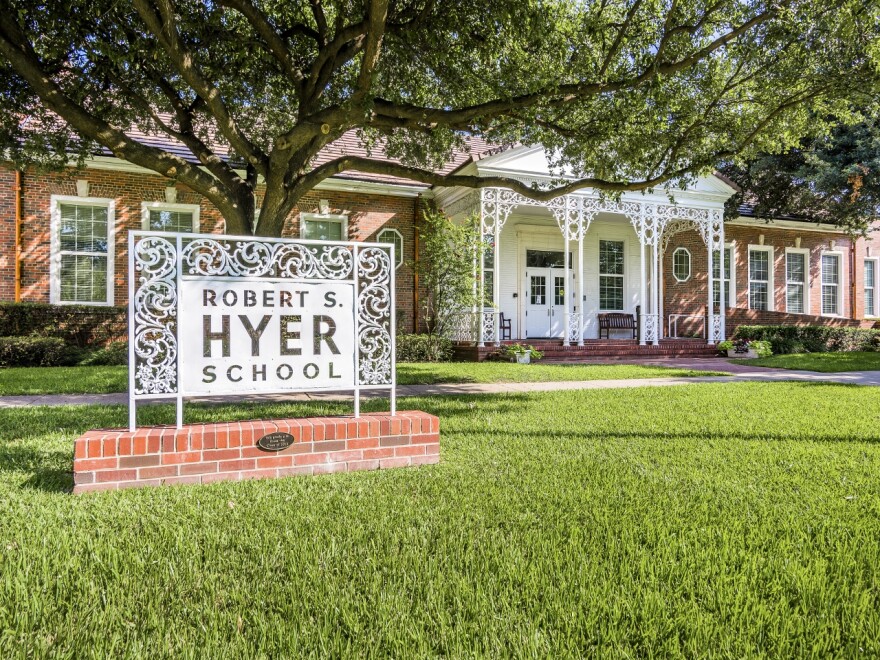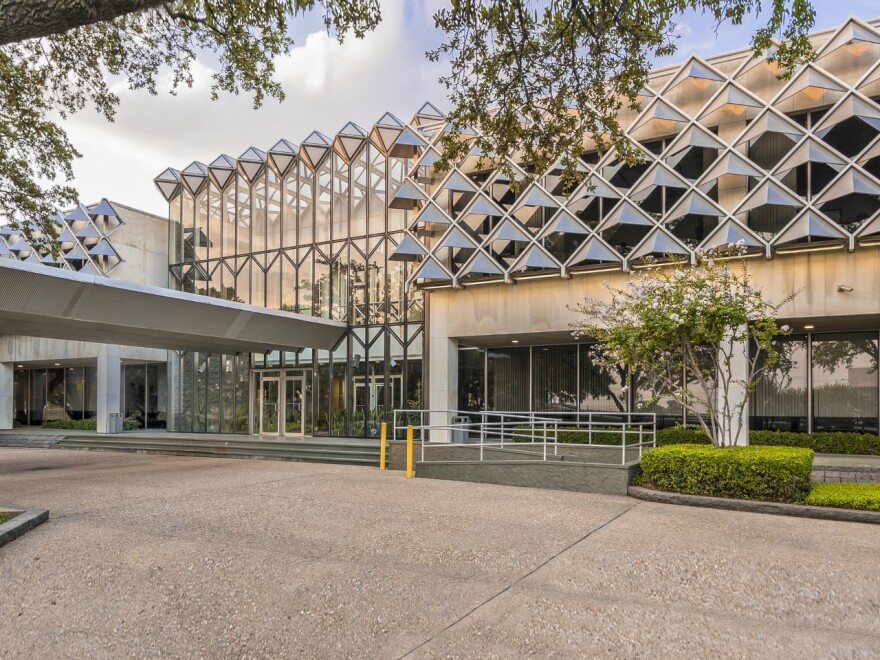It seems like there’s always a new high-rise, apartment complex or upscale grocery store popping up in Dallas. But there are several historic buildings and structures that have outlived the shiny and new -- they've become landmarks.
Preservation Dallas is trying to keep these buildings from the wrecking ball. The group recently released the 2015 Most Endangered Historic Places list. Preservation Dallas is highlighting 10 buildings that demonstrate the “rapidly disappearing residential, commercial and educational architecture” of the city.
Aldredge House
Location: 5500 Swiss Avenue (East Dallas)
Date: 1917
Architect: Hal Thomson
Namesake: Local banker George Aldredge and his wife Rena Munger
Why it’s endangered: “While the house is not threatened with demolition, it is threatened by the removal of its city permission to hold events at the house which allows the public access to one of the most wonderful historic interiors in Dallas and helps the nonprofit generate the funds necessary to maintain this historic gem. If the permission is revoked, the house will most likely have to be sold, closing it to the public and subjecting the highly intact historic interiors to modernization.”

Bianchi House
Location: 4503 Reiger Avenue (East Dallas)
Date: 1912
Architect: Lang & Witchell
Namesake: Italian sculptor Didaco Bianchi and his wife Ida
Why it’s endangered: “Although there are permits issued for work on the house, the work has seemingly stopped and the house continues to deteriorate with the roof now showing visible signs of deterioration.”

Brink’s Coffee Shop
Location: 4505 Gaston Avenue (East Dallas)
Date: 1964
Architect: Paul & Paul Architects
Namesake: Norman Brinker and his first wife Maureen Connolly, both former US Olympians
Why it’s endangered: “The building is now vacant and boarded up. Unless this unique property is renovated and brought back to life, it will continue to deteriorate, or may eventually succumb to redevelopment pressure, leading to the erasing of a part of Dallas’ culinary and architectural history.”

Cabana Hotel
Location: 899 Stemmons Freeway (City Center)
Date: 1962
Architect: Jay Sarno
Namesake: None, but it once welcomed famed guests, including The Beatles, Led Zeppelin, The Who, Jimi Hendrix, Richard Nixon, and Norman Mailer.
Why it’s endangered: “After the hotel ceased operation it was converted to the Decker Jail, which is now closed. Dallas County is in the process of selling the building to a developer interested in demolishing this once hip, mid-century building tied to the cultural history of Dallas, for a new data center.”

Selected schools in the Dallas Independent School District
Location: City Wide (Woodrow Wilson in East Dallas, Booker T. Washington downtown, and Sunset in Oak Cliff, etc.)
Date: Early 1900s to the 1950s.
Architect: Mark Lemmon, C.D. Hill and other well-known Dallas architects of the time
Why it’s endangered: “Historic schools are too important to be lost due to closure or replacement and every opportunity should be afforded by DISD for their continued use and preservation.”

Forest Theater
Location: 1914-1920 Martin Luther King Jr. Boulevard (South Dallas)
Date: 1949
Architect: H. F. Pettigrew of Pettigrew and Worley (They developed the Lakewood and Circle theaters, too.)
Why it’s endangered: “Due to sagging ticket sales, the theater closed in 1965. Since then it has been used for special events and performances. The theater and block of original commercial spaces are now up for sale and could be demolished to make way for new development, erasing a part of the African American history of the city and taking away one of Dallas’ few remaining historic theaters."

Selected schools in the Highland Park Independent School District
Location: Bradfield Elementary School – 4300 Southern Avenue (Highland Park), University Park Elementary School – 3505 Amherst Avenue (University Park), and Hyer Elementary School – 3920 Caruth Boulevard (Highland Park)
Date: 1925-1949
Architect: Lang & Witchell, Mark Lemmon
Why it’s endangered: “There are many options which would both value the original buildings of these three historically-significant schools, designed by prominent Dallas architects, while at the same time providing HPISD with the needed additional capacity. Options include the targeted demolition of ancillary additions and the rehabilitation of the original core structures, while adding on multi-level spaces to accommodate new, 21st-century educational programs.”

Historic cemeteries in Dallas
Location: City wide (McAdams in Oak Cliff, McCree in Lake Highlands, and Pioneer in downtown, etc.)
Date: As far back as the 1800s
Why it’s endangered: “Over the years, many have suffered vandalism, deterioration, storm damage, and improper upkeep of the markers. Historic cemeteries often have limited resources for care and maintenance with many markers lost in overgrowth or toppled to the ground.”

Low-rise historic Downtown buildings
Location: Downtown (Ex: Milliner’s Supply Company Building located at 911 Elm St.)
Date: Most from the early 1900s
Why it’s endangered: “They are tied to the retail and commercial history of the city and those that remain are often not protected by City of Dallas Landmark status. Smaller historic buildings downtown, 2 to 4 stories in height, are rapidly vanishing due to development pressure, with four between Elm and Main Streets demolished for new development just last year.”

Salvation Army Building
Location: 6500 Harry Hines Boulevard (Medical Center)
Date: 1963
Architect: Grayson Gill
Why it’s endangered: “The Salvation Army now uses it for offices, although the building is currently for sale. The expansion and growth of medical facilities near the building raises the threat that this mid-century gem could be razed for new development.”

Learn more
Read more information on these buildings and see what other structures have made past lists here.
Preservation Dallas provided the pictures and information about the buildings.
